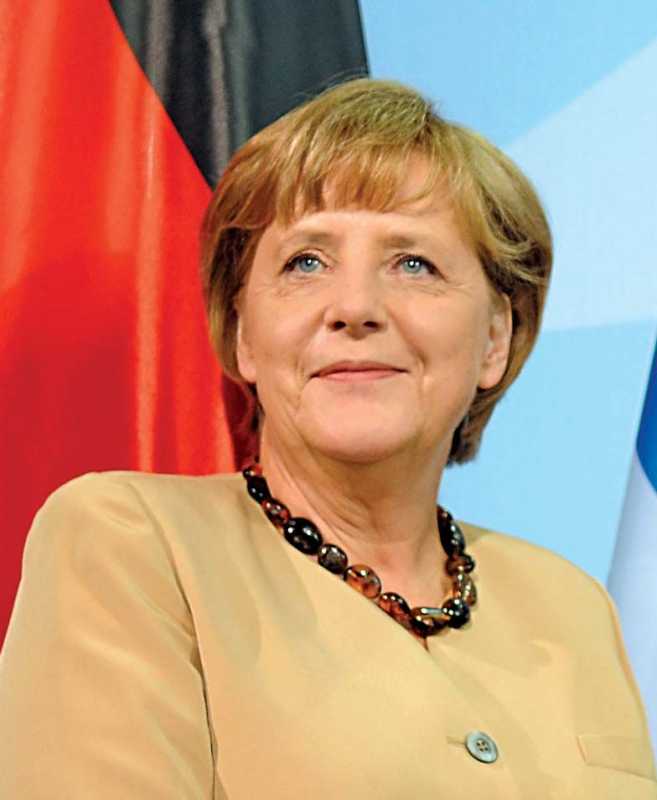People
The Remarkable Journey of Angela Merkel: A Pioneer in Politics

Table of Contents
- Introduction
- Early Life and Education
- Political Career
- Chancellorship
- Leadership Style and Influence
- Legacy and Impact
- Key Takeaways
- Facts about Angela Merkel
- Frequently Asked Questions
Introduction
Angela Merkel, a name that resonates with strength, resilience, and leadership, is one of the most influential figures of our time. Born on July 17, 1954, in Hamburg, West Germany, Merkel has defied expectations and shattered glass ceilings throughout her career. This article delves into her remarkable journey, from her early life to becoming Germany’s first female chancellor and a global stateswoman.
Early Life and Education
Angela Dorothea Merkel was raised in a modest household, her father being a Lutheran pastor. Growing up in Templin, a town in East Germany, Merkel experienced the realities of the divide between East and West. Despite these challenges, she excelled academically and pursued a degree in physics at the University of Leipzig. The pursuit of knowledge fostered her analytical abilities and laid the groundwork for her future success.
Political Career
Merkel’s political journey began after the fall of the Berlin Wall in 1989. She quickly embraced the change and joined the new Democratic Awakening party, later becoming a member of the Christian Democratic Union (CDU). Her steadfast determination and exceptional intellect propelled her ascent within the party, and she eventually became its leader in 2000.
Over the years, Merkel held several prominent positions, including Minister for Women and Youth and Minister for the Environment. Her pragmatic approach and ability to navigate complex issues earned her respect among her peers and the public. In 2005, Merkel achieved a historic feat by becoming Germany’s first female chancellor.
Chancellorship
Merkel’s chancellorship marked a significant turning point in German politics. Known for her analytical thinking, she faced numerous challenges during her tenure, such as the Eurozone crisis, migration crisis, and economic reforms. Merkel’s leadership style, characterized by cautious decision-making and consensus-building, helped Germany weather these storms.
Under her leadership, Germany navigated the global financial crisis and emerged as Europe’s economic powerhouse. Merkel’s commitment to stability and international cooperation earned her the respect of world leaders, leading to her being recognized as one of the world’s most powerful women.
Leadership Style and Influence
Merkel’s leadership style is often described as pragmatic and reserved. She is known for her analytical approach to problem-solving, meticulously weighing various options before making decisions. Her ability to maintain composure in times of crisis and find common ground has earned her the nickname “Mutti” (German for mother) among the German public.
Furthermore, Merkel’s steadfast commitment to liberal democratic values, human rights, and environmental protection has left a lasting impact on global politics. She has been a driving force in shaping policies related to climate change, the European Union, and international relations.
Legacy and Impact
Merkel’s legacy is defined by her trailblazing path as a woman in politics and her ability to navigate turbulent times with stability. She shattered the glass ceiling and inspired countless women to pursue leadership roles, showing that gender should never be a barrier to achieving one’s goals.
Her legacy also extends to her role in strengthening Germany’s position on the international stage. By championing unity, cooperation, and stability, Merkel has contributed to a more prosperous and interconnected world.
Key Takeaways
- Angela Merkel is Germany’s first female chancellor and an influential global stateswoman.
- Her leadership style is characterized by pragmatism, cautious decision-making, and consensus-building.
- Merkel’s legacy includes shattering glass ceilings and inspiring women worldwide.
- She played a pivotal role in leading Germany through numerous challenges, such as the Eurozone and migration crises.
- Merkel’s commitment to liberal democratic values and international cooperation solidified her as a respected world leader.
Facts about Angela Merkel
Here are some fascinating facts about Angela Merkel:
| 1. | Merkel earned a Ph.D. in physics and worked as a research scientist before entering politics. |
| 2. | She was the first chancellor to have grown up in the former East Germany. |
| 3. | Merkel has been named TIME magazine’s Person of the Year in 2015 and Forbes’ Most Powerful Woman multiple times. |
| 4. | She has a reputation for being a pragmatic leader who values data-driven decision-making. |
Frequently Asked Questions
1. How long was Angela Merkel Chancellor?
Angela Merkel served as Chancellor of Germany for 16 years, from 2005 to 2021.
2. Is Angela Merkel affiliated with any political party?
Yes, Angela Merkel is a member of the Christian Democratic Union (CDU), a center-right political party in Germany.
3. What is Angela Merkel’s leadership style?
Angela Merkel’s leadership style is characterized by pragmatism, cautious decision-making, and consensus-building.
4. What is Angela Merkel’s educational background?
Angela Merkel holds a Ph.D. in physics and pursued a career as a research scientist before joining politics.
Through her extraordinary journey, Angela Merkel has left an indelible mark on politics, gender equality, and international relations. Her path as a trailblazer inspires leaders of all backgrounds and affirms that resilience, determination, and integrity can overcome any obstacle. Angela Merkel’s legacy will continue to shape the global stage for years to come.












